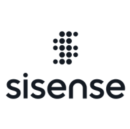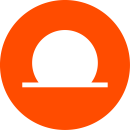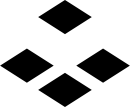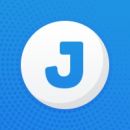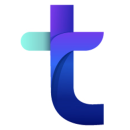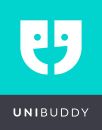When Liz Kwon, a team lead of customer success at email creation platform Stensul, looks to hire new candidates, she knows that the ability to be flexible is important. “Especially with the pandemic and all that is happening around the world today, I look for candidates that are able to not only embrace and adjust quickly to change, but also communicate and connect with their colleagues and customers,” she said.
Kwon isn’t alone, either. Dan Plottner, the head of global sales at fintech company Fidel API, has similar ideas. “Adaptability is essential at a startup because you must be able to deal with ambiguity and roll with the punches,” he said.
It’s no secret that success in the startup world requires grit and a can-do attitude at every level. According to 2022 data from Crunchbase News, New York’s venture-backed startups raised more than $52 billion last year, more than double the $20.2 billion that was raised in 2020, and with big money comes big opportunities for innovation, growth and change. Hiring candidates that can adapt and rise to the challenge is an essential part of riding that wave — especially in the tech industry where that wave can often feel more like a tsunami.
In an industry of innovation and creativity, one thing that is guaranteed is continuous change and development. Kwon and Plottner were joined by ten other industry leaders in the New York area to discuss how their companies have grown and evolved since they joined, as well as what they look for when hiring new members to their teams.

Why did you first apply to join your company and how has your experience evolved over time since you were a new hire?
I found Sisense through an online post and was initially drawn in by the thoughtful 30-60-90 day plan that the company includes in all of its job descriptions. After doing further research on Sisense, I was intrigued by the product offerings, as well as the collaborative and inclusive company culture. Since joining, I am sure that I have made the right choice. Sisense continues to lead with new and pioneering products while maintaining the core values that make us unique. I am excited to see where the next step in our journey takes us!
We want candidates to bring their ideas to the table and help us work towards our common goals in a strategic and thoughtful way.”
When you’re looking to grow your team, what’s a quality that you look for in candidates and why is it important at your company?
First and foremost, we look for candidates that align with our values — authenticity, inclusivity, caring, customer-obsessed and a challenger. We want candidates to bring their ideas to the table and help us work towards our common goals in a strategic and thoughtful way. This ensures that we stay connected to the foundations that have contributed to our success while looking forward to an innovative future.
Why did you first apply to join your company and how has your experience evolved over time since you were a new hire?
At the time I applied to DailyPay, I was seeking to transition to a product role at a mission-driven tech company. I had become particularly interested in the space of on-demand pay and the more I researched, the more it became clear to me that DailyPay’s model was a true win-win for employees and employers. Individuals can access up to 100 percent of earned income in order to take control of their finances, while employers can boost employee satisfaction and increase retention.
My team — new markets — was described to me as a “start-up within a start-up.” I continue to remain energized by being in a dynamic environment with talented, kind and passionate coworkers where we get to build things from scratch and challenge the status quo. The main change I’ve seen since joining has been the pace of growth. Despite having joined in October, I am already one of the more tenured members within our team! I am excited to see how the company continues to expand.
I continue to remain energized by being in a dynamic environment with talented, kind and passionate coworkers where we get to build things from scratch and challenge the status quo.”
What’s your most interesting or exciting work-related challenge right now and how are you overcoming it?
My most exciting challenge right now is learning how to manage an ever-growing pipeline. As a product manager on our marketplace team within new markets, there are a variety of new products and features, as well as new partners coming onboard. As timelines shift for projects going to launch and new ones entering the pipeline, I have learned to be ruthless in prioritizing the most critical pieces of work to hit our goals while still remaining flexible as there are parts of the process outside of product and developers’ control.
A key learning for me has also been to remain centered in the customer’s needs in prioritizing. It can be tempting to try to stick to delivering original ideas or focus too much on quick wins after time and resources have been invested. I am challenging myself to continue to take the extra step back to re-evaluate from the user’s perspective and prioritize the best solution as we understand it, even if this means accommodating timelines. It will pay off in the long-run!
Why did you first apply to join your company and how has your experience evolved over time since you were a new hire?
I came on board Anchorage Digital four years ago, right at the beginning—so as you can imagine with a startup, my role has changed a lot! My history with Anchorage goes back to before it was even founded, since I studied at Portugal’s Instituto Superior Técnico with Anchorage’s Co-Founder Diogo Mónica. We’d been discussing blockchain security and eventually he invited me to help explore his idea for a security platform—Anchorage. Our skill sets in distributed systems and security were a great match to build our technology and platform.
My role has grown in parallel with the company. Early on, we were building the company, technology, and platform from the ground up, so I wore a lot of different hats and pitched in everywhere I could. Over time, the company’s needs changed as we scaled, and I was able to focus on where I bring the most value: growing and developing the engineering team. I like to be a force multiplier and a coach, to help people grow in their careers and learn from them as well. It’s rewarding to see my strengths as a manager contribute to growing and scaling Anchorage.
No two days at Anchorage are the same.”
What’s your most interesting or exciting work-related challenge right now and how are you overcoming it?
No two days at Anchorage are the same, new challenges arise every day. As an engineering lead, my most interesting challenge right now is balancing the diverse skill sets on our team as we continue to scale. Technical, product, management and other skills are all important to Anchorage’s success, and it’s natural that in a fast-growing environment sometimes the team is stronger in one area than in others. Bridging different areas of the business, developing the team, optimizing our processes for a global environment — these are all strengths that can help us achieve the balance we need.
We’re tackling this by focusing on areas that can be easy to overlook in the hectic day-to-day: leaning on our team’s network, and growing awareness of our brand and visibility in the engineering community. Anchorage is a great place to be for engineers. We’re building new technology, and the crypto space has almost endless potential. My challenge is to make sure we’re telling that story externally so we can attract the right talent and achieve the balance we need on the team.
Why did you first apply to join your company and how has your experience evolved over time since you were a new hire?
I was very excited to join a company that has been experiencing explosive growth. The opportunity to lead user experience (UX), especially as a peer with the heads of technology and product, made this a very simple decision.
Culturally, iCapital seizes every opportunity to integrate everyday life into employee work, whether it’s diversity and inclusion, current events, employee recognition or women’s history. There’s more to working here than just the work.
One experience that stood out to me was the annual promotion celebration. The entire company was on the video call as the leaders read the individual successes and qualities that earned the candidates their respective promotions. At one point, one group erupted in celebration for one of their colleagues. The sense of camaraderie was moving.
I encourage candidates to ask me anything — I don’t want any unanswered questions.”
When you’re looking to grow your team, what’s a quality that you look for in candidates and why is it important at your company?
When growing the team, my interviews are not limited to the candidate’s technical skill set. I always begin with a 30-minute, one-on-one video call. This isn’t necessarily a time where I am going to drill down on their design skills, but instead I’m looking at soft skills — courtesy, attentiveness, empathy and active listening. I’m making sure the candidate is very clear on the role’s expectations and what it is like to work on the team. I encourage candidates to ask me anything — I don’t want any unanswered questions. Then we move on to the design discussions.
I’m a big believer in first impressions. Coming out of that initial phone call, I want us both to know that we can work well together. UX designers are interacting with people at all levels both within and outside the organization, so it’s really important that they can carry a conversation with ease and hear our users.

Why did you first apply to join your company and how has your experience evolved over time since you were a new hire?
I initially heard about Jackpocket through peers right around the time of the company’s Series B capital raise in October 2018. After learning more about the company’s mission and experiencing the product, I applied for a role and have not looked back since. From jurisdiction expansion to immense customer growth to scaling our technologies, my experience has substantially evolved since day one. We’re a special team and our trajectory has been an invaluable learning experience to see first-hand.
We’re a special team and our trajectory has been an invaluable learning experience to see first-hand.”
What’s your most interesting or exciting work-related challenge right now and how are you overcoming it?
Building our new web-based experience has been a significant challenge, mostly due to the need to invest in new technologies to overcome both industry regulation and compliance requirements. We’ve been able to overcome these hurdles through stakeholder collaboration and agile development based on our first-party learnings and insights while both investing and shipping an innovative and excellent customer experience.

Why did you first apply to join your company and how has your experience evolved over time since you were a new hire?
I was referred to the VP of people by a mutual friend and applied. I honestly didn’t think much of it as I was in the thick of interviewing with other companies at the time. I heard from the team within a couple of days and an interview was scheduled. The interview process was smooth, and since joining in June 2021, my experience has been nothing short of fantastic. I love my team and the sense of collaboration throughout the company. From the support of the VP and our Crocs-loving CTO to the fun energy of our engineering team at all levels, I truly enjoy coming to work at ActionIQ. Our CEO, Tasso, is an advocate for all employees having fun, collaborating and feeling appreciated as valuable members of the company.
We are truly working towards establishing ActionIQ as a company that goes beyond just the ‘checking the box’ in the DEI conversation.”
What’s your most interesting or exciting work-related challenge right now and how are you overcoming it?
The most interesting and exciting work-related challenge right now is to not simply be part of the status quo conversation regarding diversity, equity and inclusion (DEI). Instead, we are truly working towards establishing ActionIQ as a company that goes beyond just the “checking the box” exercise of participating in the DEI conversation.
Part of our approach is to genuinely invest in grassroots organizations that work in various communities to invite candidates from underrepresented groups into the engineering interview process. This is a high effort endeavor for both the people and engineering teams but we feel this is necessary and each person must be committed to digging deeper than what comes easily with such matters. We own the fact that we are on a journey and aren’t perfect — there’s no such thing as perfect with DEI — but we are fully committed to changing the narrative and making a difference for as long as we must. We owe it to ourselves, our company, our community and our integrity.
Why did you first apply to join your company and how has your experience evolved over time since you were a new hire?
I saw an internship at Truveris as a great opportunity to experience working at an aggressive-growth stage company. Between my time as an intern, accountant and now as a finance manager, I have had the chance to contribute to the company’s rapid growth through the expansion of the products we offer, bringing transparency to the healthcare industry.
I saw an internship at Truveris as a great opportunity to experience working at an aggressive-growth stage company.”
What’s your most interesting or exciting work-related challenge right now and how are you overcoming it?
I am constantly learning and integrating with the business by analyzing and reporting on business metrics that extend beyond typical financial metrics. While it can be challenging, I enjoy understanding all aspects of our business to effectively identify, track and report KPIs.
Why did you first apply to join your company and how has your experience evolved over time since you were a new hire?
As someone who worked for years at an education non-profit, applying for a role at Unibuddy gave me the opportunity to combine my passion for higher education access with my events background. Unibuddy’s mission to connect peers and help students make such a crucial life decision really resonated with the struggles I faced in my own higher education journey. Being able to join a community of people who care about supporting students throughout that process is what keeps me here and keeps me motivated about my work. Even after a year in my role I still feel like everyone stays true to the mission and the environment allows you to grow in your role and seek new challenges.
The environment allows you to grow in your role and seek new challenges.”
What’s your most interesting or exciting work-related challenge right now and how are you overcoming it?
As our presence in the United States grows, we are attending a growing number of events. Working on so many events from small, local conferences to large, international conferences with thousands of people has given me an opportunity to be very creative and dynamic with my approach. I am very excited about seeing our brand grow as more and more people recognize us from our presence at these events. The entire team is very supportive of our strategy and being able to rely on them for their advice, support and energy has made managing all of these events such a smooth process. Event success is dependent on so many stakeholders and being able to trust your team to deliver takes a lot of the stress out of planning.
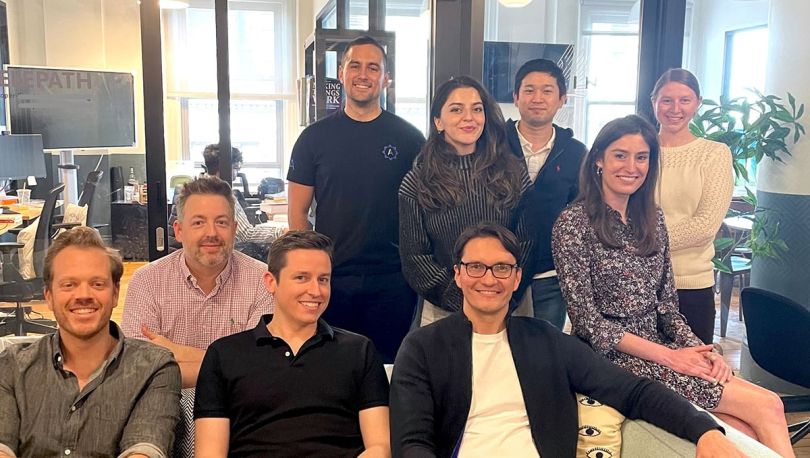
Why did you first apply to join your company and how has your experience evolved over time since you were a new hire?
When I began my search, there were three things I considered, each of which emphatically ticked the box at Fidel API: untapped market, dynamic leadership and a sales-growth mindset.
I prefer working with companies that are inventing new categories versus building a better mousetrap and Fidel API’s technology is doing just that. Startups through global enterprises are leveraging Fidel API’s tools to power a range of solutions including digital receipts, customer attribution, loyalty and rewards, commercial expense management and personal financial management.
Having a dynamic leadership team was also important to me because startups can have unique challenges as they grow. I need to be part of the team with a winning mindset and the IQ and EQ to lead from the front.
I also gravitate to organizations that balance a strong product mindset with a high value for the sales team. It is incredible to work at a company that measures its product team by how much more of the market the sales team can sell to or how much larger our average deal size becomes. Using this mindset, we have doubled the AE and SDR teams since I joined and are continuing that growth.
It is incredible to work at a company that measures its product team by how much more of the market the sales team can sell to or how much larger our average deal size becomes.”
When you’re looking to grow your team, what’s a quality that you look for in candidates and why is it important at your company?
I always look for sales people that have a track record of success, as well as a high degree of curiosity. The track record speaks for itself, but curious sales people ask that next question — they dig further because they want to understand the issues of our customers and aren’t just going through their list of questions. Since we are selling financial infrastructure APIs, we don’t have a typical demo portion of the sale. Since Fidel API’s tools can be used to power so many different experiences and across so many different verticals, the discovery process is the most important part of our sales motion. Focusing on sales people with a naturally high degree of curiosity is important to both the SDRs, who need to find the value prop that resonates with the prospect to take that first meeting, and for the AEs, who need to go deep on discovering how our solution could fit in with their crowded product roadmap.
Additionally, I look for grit and adaptability in our sales team members. Whether you are an SDR or AE, a job in sales will require you to face rejection, so grit is important. Adaptability is essential at a startup because you must be able to deal with ambiguity and roll with the punches.
Why did you first apply to join your company and how has your experience evolved over time since you were a new hire?
The two criteria I always evaluate for any opportunity are people and product. Starting at Stensul at the beginning of the pandemic, I had obvious concerns about onboarding remotely. However, everyone’s willingness to help others has spoken volumes for the community here. Stensul takes deliberate action on their people-first approach, most notably by bringing experts in to initiate conversations around DEI at a company-wide level.
I started as a CSM and have been able to see the customer success organization grow in tremendous ways. I am thankful to have supportive peers, an amazing mentor from First Round and managers that have helped me grow and pursue my professional development goals. I’m now a team lead for an incredible group of CSMs and while I continue to work directly with our customers and collectively with CSMs, I also help build out processes and documentation to drive efficiencies for the team.
At Stensul, I hope to lead with empathy to build genuine partnerships and relationships.”
When you’re looking to grow your team, what’s a quality that you look for in candidates and why is it important at your company?
While there are technical and objective criteria to evaluate as I search for candidates to grow the team, two character traits I place value on are empathy and a willingness to learn and adapt. At Stensul, I hope to lead with empathy to build genuine partnerships and relationships.



